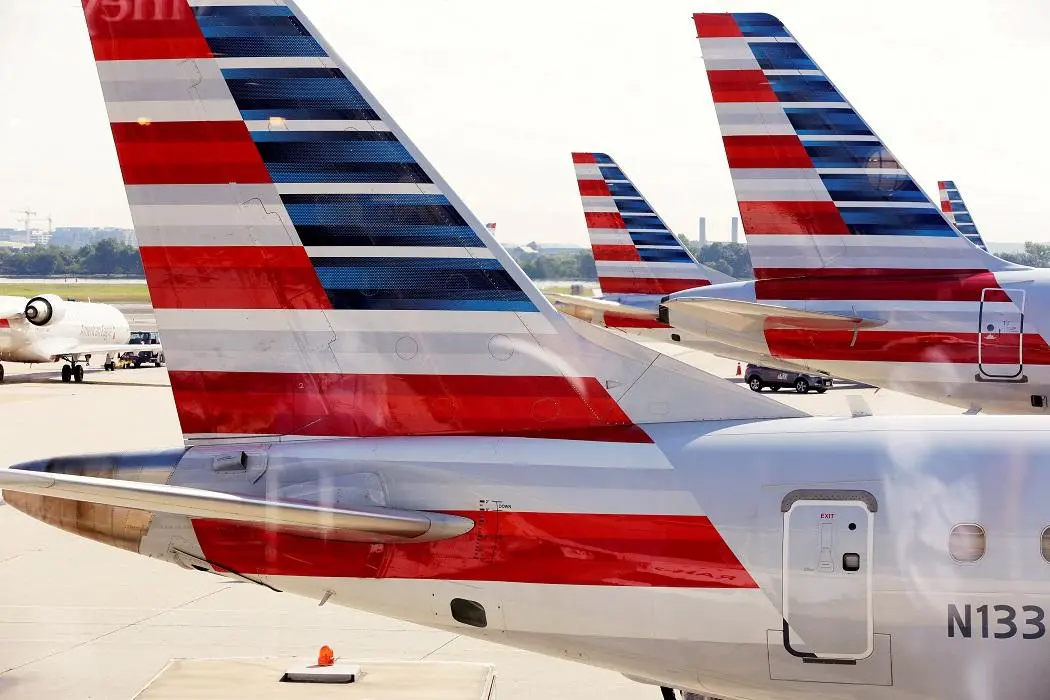PHOTO
(The author is a Reuters Breakingviews columnist. The opinions expressed are her own.)
DALLAS - U.S. airlines are flying in regulatory skies that are far too friendly. Government-backed bailouts of American Airlines, Delta Air Lines and others have effectively branded the industry systemically essential. But Washington has only imposed temporary restrictions in return for taxpayer aid.
Air carriers that enable global commerce and travel are finding ways around a near-impossible business environment. American said on Friday that “customers may notice that flights are booked to capacity starting July 1,” while it ramps up cleaning. Thanks in part to being propped up by backstops from the Federal Reserve, United Airlines, American, Delta and others have raised cash from both debt and equity investors in the past several weeks.
That may not be enough. Union officials representing six airlines sent a letter to Congressional lawmakers last Thursday asking for more money, Reuters reported. New Covid-19 cases are rising rapidly again in the United States, hitting a record daily high of 44,000 on Friday, threatening the country’s economic recovery; Texas halted reopening certain businesses on Friday.
Fresh bailouts bring fresh questions, like whether airlines need more money from taxpayers, or can rely on private investors again. Second is how much stock airline companies will be willing to forfeit in exchange for more government rescues.
The more airlines lean on Uncle Sam, though, the more prudent it would be for Congress to insist on stronger balance sheets. Lawmakers, after all, imposed a raft of restrictions on banks after the 2008 meltdown, including keeping more cash on their books, and mandated the Federal Reserve to perform annual stress test on the biggest of them; the most recent results came out last week.
Airlines had to accept restrictions on stock buybacks, dividends and executive compensation in return for taking taxpayer aid, but many of them will be lifted as early as next year.
Perhaps experience will teach management to avoid going back to their old ways of filling up on debt to buy back stock. After all, unlike banks’ role in the mortgage crisis, the pandemic isn’t of the airlines’ making. But the implicit financial backing they’re now getting from Washington requires more than just short-term restraints. U.S. airlines are flying into stress-test airspace.
CONTEXT NEWS
- Chief executives of American Airlines, Delta Air Lines, JetBlue Airways, Southwest Airlines and United Airlines met Vice President Mike Pence and other U.S. officials at the White House on June 26.
- In a letter to Congress six airlines unions representing the industry’s workers asked for an additional $32 billion in payroll aid, Reuters reported on June 25. The request came as the Senate and House of Representatives debate further bailouts in response to a resurgence of coronavirus cases.
- "Should October 1 arrive without extending the PSP grant job program mass layoffs are inevitable, as airline executives have acknowledged," union leaders wrote in the letter, according to Reuters.
- American Airlines, Delta Air Lines and others received loans and grants from the federal government earlier this year, in return for which they had to accept restrictions on executive pay, dividends and stock buybacks.
- On June 25 the Federal Reserve released results of the annual stress tests of the 33 of the largest banks it oversees.
(The author is a Reuters Breakingviews columnist. The opinions expressed are her own.)
(Editing by Antony Currie and Amanda Gomez) ((Lauren.SilvaLaughlin@thomsonreuters.com))





















